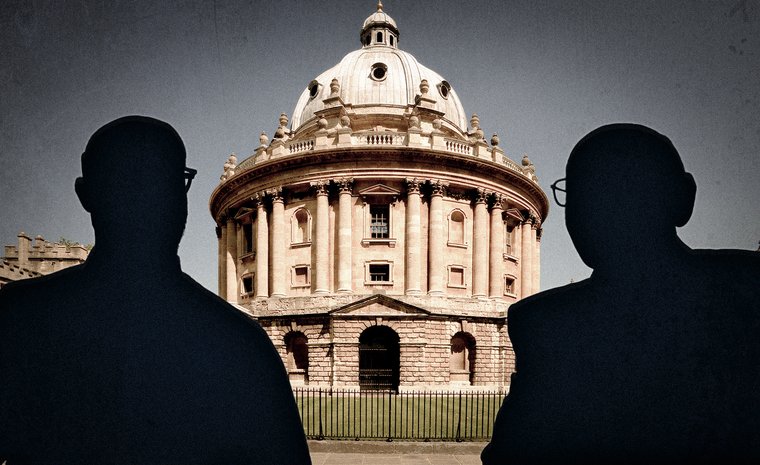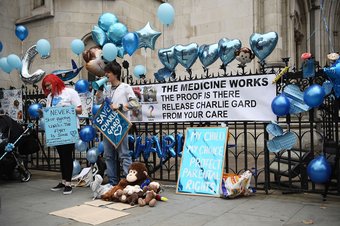Net Zero Secretary ‘not embarrassed’ at ditching 2030 emissions target
Jody Harrison
Fri, 19 April 2024

Mairi McAllan confirmed on Thursday the Scottish Government is scrapping a key climate change target because it will not be achieved (Image: PA)
Scotland’s Net Zero Secretary has insisted she was not embarrassed at having to ditch a key climate change target – despite green campaigners branding the move the “worst environmental decision in the history” of devolution.
Activists hit out after Mairi McAllan confirmed to MSPs the goal of reducing emissions by 75% by 2030 is being abandoned by the Scottish Government.
Independent experts at the UK Climate Change Committee had already told Holyrood ministers that achieving the target was “beyond credible”.
Oxfam Scotland said the move was a “reprehensible retreat caused by its recklessly inadequate level of action”, while Friends of the Earth Scotland described the move as “the worst environmental decision in the history of the Scottish Parliament”.
Together with other groups, Friends of the Earth now plans to stage a demonstration outside Bute House in Edinburgh, the official residence of the First Minister, next week to protest against the move.
The decision to abandon the 2030 target comes despite the Scottish Government having previously lauded its “world leading” climate change legislation.
But when asked if she was embarrassed by the move, Ms McAllan insisted: “I am not embarrassed.”
She told BBC Radio Scotland’s Good Morning Scotland programme she can “understand why some people are disappointed”, adding that “in many ways I am too”.
READ MORE: Green members call for emergency talks to end SNP deal after stormy meeting
With the 2030 target having been enshrined in laws passed by Holyrood in 2019, Scottish ministers will now have to amend that legislation to remove it.
“I didn’t necessarily want to have to open up the legislation and make amendments,” Ms McAllan said.
“I have spent as much time as I possibly could with my team exploring every possible avenue not to have to do that.”
But she stressed “we shouldn’t overplay what is actually being done here”, saying any changes will restate the Scottish Government’s overall goal of reaching net zero emissions by 2045 – five years earlier than the UK Government’s target for this.
While Ms McAllan said this is “very ambitious”, she insisted it is a “realistic goal”.

The Herald: The minister said the Scottish Government remains committed to achieving net zero emissions by 2045
She said when MSPs had voted for the 2030 target, “it was well understood it was likely to be beyond the realms of what was achievable”.
She also insisted action is “more important than targets” as she claimed Scotland “remains a world leader” in tackling climate change.
Ms McAllan said: “We are nearly halfway to net zero, having reduced our emissions by almost 50% on the 1990 baseline.
“We continue to decarbonise faster than the UK as a whole and our 2045 target remains one of the most stretching in the world.”
Highlighting actions taken by the Scottish Government, Ms McAllan added: “In recent years we have planted 75% of all forests in the UK in Scotland”, and said the country has “developed the most comprehensive network of EV (electric vehicle) charging per head outside of London in the UK”.
But Scottish Conservative net zero spokesperson Douglas Lumsden said: “Mairi McAllan continues to show no shame over her government’s appalling record on hitting its own climate-change targets.
“It is astonishing that she can say she is not embarrassed at this abject humiliation given that the SNP spent years telling anyone who would listen that their targets were world-leading.”
Laura Pollock
Thu, 18 April 2024

First Minister Humza Yousaf and Net Zero and Just Transition Secretary Mairi McAllan visit the Port (Image: PA)
THE Scottish Government is to set out its next steps on tackling climate change after a report warned it is now “beyond credible” that Scotland’s target to reduce emissions by 75% by 2030 will be met.
It comes amid reports that the Scottish Government could be planning to ditch the 2030 goal, but remain committed to meeting its target of net zero emissions by 2045.
The move would be seen as a major climbdown for the administration at Holyrood – where Green politicians are now in government thanks to the Bute House powersharing agreement with SNP.
But a report from the Climate Change Committee (CCC) published in March said that, for Scotland to achieve the goal of cutting harmful emissions by 75% by then, the rate of emission reduction in most sectors would need to increase by a factor of nine in the years up to the end of the decade.
READ MORE: SNP minister 'disappointed' as Scotland 'to ditch key climate pledge'
As a result, it said: “The acceleration required in emissions reduction to meet the 2030 target is now beyond what is credible.”
The Scottish Government has missed its legally binding annual emissions reduction targets in eight out of the last 12 years.
Scotland Net-Zero Secretary Mairi McAllan will give an update to Holyrood on next steps following the CCC report on Thursday afternoon.
Speaking ahead of the statement, she said that taking action to tackle the twin crises of climate change and nature loss is the “defining global issue of our era”.

The National: Mairi McAllan
She added: “Whilst we are faced with a UK Government which is rowing back on climate action, and hostile to measures already adopted by nations across the world like the Deposit Return Scheme, the progress we have made since Scotland declared a global climate emergency in 2019 and since Glasgow hosted Cop26 in 2021 is now at risk.
“This cannot continue. The future of our planet and the security of future generations is far too important.
“Tackling climate change is an environmental imperative and our moral obligation. However, done correctly, it can also present perhaps the single greatest social and economic opportunity of many generations in Scotland.
“To achieve this, our work must be taken forward in a way that is ambitious and fair, which empowers communities and recognises the different needs of rural, island and urban areas.
“This Government is absolutely committed to tackling the climate crisis with the urgency and pace which is required. However, to do so we need collective will and a common sense of priority.
“I call on all parties in the Scottish Parliament to put politics aside, to reject culture wars, and to back our efforts. This is our collective mission in which we cannot fail.”
READ MORE: Scottish climate changing faster than expected, new research says
Following the publication of the CCC report in March, McAllan said the Scottish Government remains fully committed to meeting its target of net zero emissions by 2045.
Scottish Greens climate spokesman Mark Ruskell said: “We are absolutely determined to accelerate the urgent and substantial action needed to tackle the climate crisis as laid out by the CCC recently, and fully expect the Scottish Government to respond to that challenge.”
Climate campaigners however said that ditching the 2030 target would be an “acute global embarrassment” for the Scottish Government.
Jamie Livingstone, head of Oxfam Scotland, said: “With the world becoming a dirtier and deadlier place every day, any decision by Scottish ministers to rewrite Scotland’s climate rulebook would be an acute global embarrassment.
“It would also be the direct and damaging consequence of the Scottish Government’s own dilly-dallying on climate action.”
Meanwhile, Scottish Conservatives said the move would be an “abject humiliation” for the SNP and Green government at Holyrood.
Net zero spokesman Douglas Lumsden said: “For all the boasting about their supposed environmental credentials, the reality is a succession of missed targets – and being forced to throw in the towel on this flagship pledge represents the biggest failure of the lot.”
The Tory MSP added: “This climbdown is not a surprise, given the damning report from the Climate Change Committee, but it is symptomatic of a Nationalist coalition that routinely over-promises and under-delivers.”
We will achieve net zero by 2045, Yousaf vows as interim goal to be axed
Craig Paton and Lucinda Cameron,
Thu, 18 April 2024
The Scottish Government will not miss its target of reaching net zero by 2045 by a single day, Humza Yousaf has vowed as ministers are set to ditch an interim goal to reduce emissions by 75%.
Net Zero Secretary Mairi McAllan will address Holyrood later on Thursday and is expected to abandon the Government’s 2030 target, which was described as “beyond credible” by the Climate Change Committee (CCC), and lay the blame firmly at the feet of the UK Government.
Speaking during First Minister’s Questions, Mr Yousaf said her statement will outline a series of policies to accelerate the move to net zero – but did not dispute that the interim target will be scrapped.
Instead, he reaffirmed the Government’s commitment to achieving net zero by 2045.
“This Government will not move back by a single month, a week or even a day from that 2045 target for achieving net zero,” he said.
“Let’s be clear, the CCC were always clear with us that the 2030 target was a stretch target.
“That was clear to all of us when we all committed, we all backed that target in the first place.
“But what doesn’t change, and what won’t change, is that end destination of 2045.”
He said Ms McAllan will bring forward an “accelerated package of climate action”, and he urged opposition MSPs to back the Government’s plans.

Mairi McAllan will make a statement in Holyrood on Thursday (Andrew Milligan/PA)
Responding, Scottish Labour leader Anas Sarwar described the First Minister’s argument as “embarrassing”, adding: “That may have worked with (Scottish Green co-leaders and Government ministers) Patrick Harvie and Lorna Slater, but it’s not working with the Scottish people.”
He later added: “Humza Yousaf is rowing back on his climate targets and the Green Party is backing him up.
“This SNP-Green Government’s failures mean higher bills, fewer green jobs and other countries winning the global race for clean energy.”
He said Labour – if elected in the upcoming general election – will upgrade insulation in homes, create 50,000 “clean power jobs”, and create an energy generation firm headquartered in Scotland.
The First Minister said one thing missing from the list of actions from Mr Sarwar was the dropped pledge to invest £28 billion in the green economy, adding that instead Scotland will get a “brass plaque” on the headquarters of the proposed GB Energy “that will undoubtedly match the brass neck that Labour has”.
In a statement released on Thursday morning, Ms McAllan said taking action to tackle the twin crises of climate change and nature loss is the “defining global issue of our era”.
She added: “Whilst we are faced with a UK Government which is rowing back on climate action, and hostile to measures already adopted by nations across the world like the deposit return scheme, the progress we have made since Scotland declared a global climate emergency in 2019 and since Glasgow hosted Cop26 in 2021 is now at risk.

Scottish Labour leader Anas Sarwar hailed his party’s green credentials (Andrew Milligan/PA)
“This cannot continue. The future of our planet and the security of future generations is far too important.
“Tackling climate change is an environmental imperative and our moral obligation. However, done correctly, it can also present perhaps the single greatest social and economic opportunity of many generations in Scotland.
“To achieve this, our work must be taken forward in a way that is ambitious and fair, which empowers communities and recognises the different needs of rural, island and urban areas.
“This Government is absolutely committed to tackling the climate crisis with the urgency and pace which is required. However, to do so we need collective will and a common sense of priority.
“I call on all parties in the Scottish Parliament to put politics aside, to reject culture wars, and to back our efforts. This is our collective mission in which we cannot fail.”
The Scottish Conservatives said scrapping the interim goal will be an “abject humiliation” for the SNP and Green Government at Holyrood.
Net zero spokesman Douglas Lumsden said: “For all the boasting about their supposed environmental credentials, the reality is a succession of missed targets – and being forced to throw in the towel on this flagship pledge represents the biggest failure of the lot.
“This climbdown is not a surprise, given the damning report from the Climate Change Committee, but it is symptomatic of a nationalist coalition that routinely over-promises and under-delivers.”
Iona Young
Wed, 17 April 2024

According to experts, the Scottish Government will axe one of its key climate change target -Credit:Jane Barlow/PA Wire
The Scottish government is expected to ditch its flagship target of reducing greenhouse gas emissions by 75% by 2030, according to reports.
Ministers have missed eight of the last 12 annual emissions targets, with experts claiming it is now impossible for the country to meet the 75% milestone by the end of the decade, BBC Scotland reported.
However, the final goal of reaching net-zero by 2045 is expected to remain.
A statement is expected to be made in Holyrood on April 18.
The CCC has previously warned that Scotland had lost its lead over the rest of the UK in tackling the issue and last year ministers failed to publish a plan which was required under the act to detail how they would meet the targets.
Màiri McAllan, the Cabinet Secretary for Net Zero, is due to address MSPs on Thursday when she will set out the government’s response to the damning report by the CCC.
The minister has already said she is exploring legislative options.
In a damning report published in March Chris Stark, chief executive of the Climate Change Committee branded the Scottish Government's climate plans “a failure” and claimed they were "too stretching.”
Scientists have already warned that this is a crucial decade for keeping global warming below 1.5C, a goal world leaders agreed to in 2015.
The 2030 target is only six years away and the Scottish Government failed to publish its draft Climate Change Plan in late 2023 as planned.
The main concerns in the report included current overall policies and plans in Scotland falling short of what is needed and that current targets are no longer possible to achieve in the time frame provided.
Chris Stark said: "That is a failure of the Scottish government to bring to the Scottish people, and the Scottish Parliament, a climate change plan that is fit for purpose.
"This is the first time, anywhere in the UK, that we've said there's a target that can't be met. It's a shame we have to give that message to the Scottish government but what's behind it is a lack of progress all around."
The Scottish Parliament legislated to cut greenhouse gases by 75% compared with the UK's target of 68% by the same date and Scotland's emissions reduction target for 2030 is harsher than the UK's as a whole.
Jamie Livingstone, Head of Oxfam Scotland, also slammed the decision and said: “With the world becoming a dirtier and deadlier place every day, any decision by Scottish Ministers to re-write Scotland’s climate rulebook would be an acute global embarrassment.
"It would also be the direct and damaging consequence of the Scottish Government’s own dilly-dallying on climate action
“Ministers and MSPs from every party in the Scottish Parliament should instead be focused on securing the significant funds required to invest right now in faster climate action through fair tax reforms which protect the worst off and incentivise polluters to clean up their acts.
“Anything less and Scotland will deliver yet another body blow to climate-hit communities while risking a dangerous race to the bottom on global climate ambition.”
Friends of the Earth Scotland’s head of campaigns Imogen Dow said: “If the SNP and Green Ministers choose to scrap these vital climate commitments, it would be the worst environmental decision in the history of the Scottish Parliament.
"The 2030 target could and should have been met, but instead it looks like politicians are going to break their promises and betray both their constituents and the most vulnerable people on the frontlines of climate breakdown.
“These climate targets are based on what climate science says Scotland must do as part of a global effort to limit dangerous warming. Politicians right across the spectrum made a promise to the people of Scotland by voting for strong 2030 targets so they must be willing to work together to back the transformative ideas that improve lives and cut climate pollution."
Scottish Greens climate spokesperson Mark Ruskell MSP said: “We are absolutely determined to accelerate the urgent and substantial action needed to tackle the climate crisis as laid out by the CCC recently, and fully expect the Scottish Government to respond to that challenge.”
“This is a pivotal moment for us to ramp up the kind of meaningful change that will put us on track to achieve net zero by 2045 at the latest, in the face of a complete reversal of climate action from the UK Government.”










